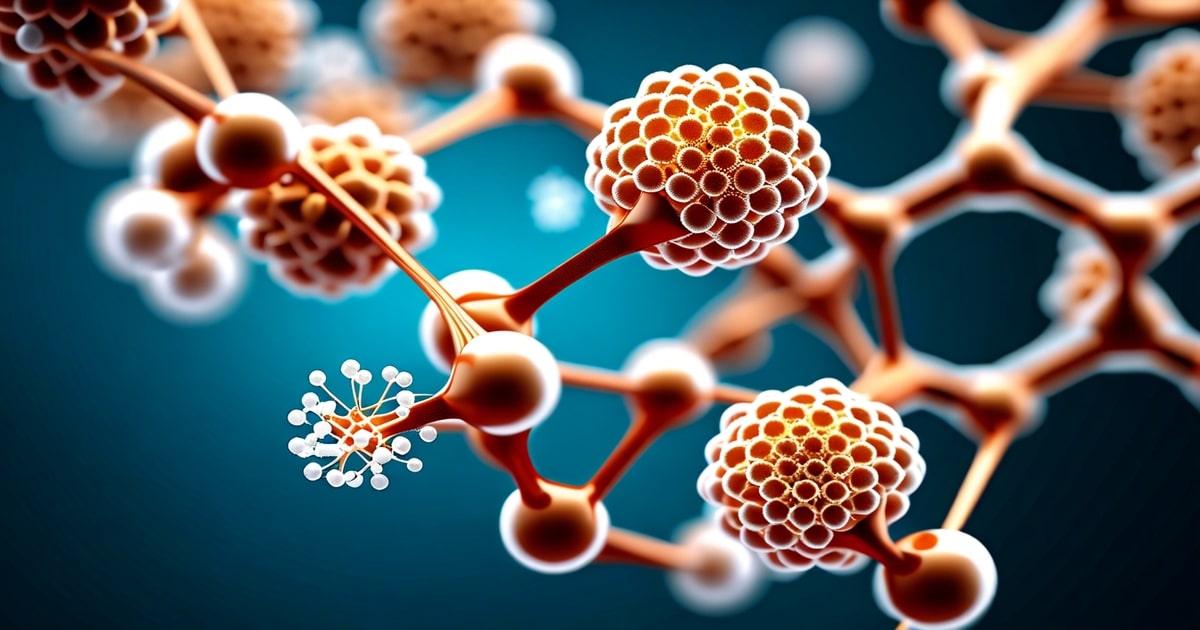Key Takeaways
-
Explore Natural Sources: Incorporate vitamin B17-rich foods like apricot seeds, bitter almonds, apple seeds, and nuts into your diet for potential health benefits.
-
Be Informed: Understand the compound amygdalin found in these plants and its potential anticancer properties to make informed decisions about its use.
-
Exercise Caution: Be aware of safety concerns and potential side effects associated with high doses of vitamin B17, especially in supplement form.
-
Stay Educated: Learn about the controversy surrounding laetrile, a drug, and its use in cancer treatment to have a complete view.
-
Consult healthcare providers before considering amygdalin as an anticancer agent to assess its efficacy and safety for your specific situation.
-
Address common worries about vitamin B17 consumption by seeking guidance from healthcare professionals and conducting thorough research on cancer treatments.
Ever heard of Vitamin B17? Often hailed as a natural health booster, it’s a controversial topic in nutrition. Some claim it possesses miraculous properties, while others dismiss its benefits entirely. Get ready for an eye-opening journey through contrasting viewpoints on this intriguing nutrient.
Overview of Vitamin B17 and Its Medical Uses
Anticancer Properties
Vitamin B17, or amygdalin, is a natural compound in specific foods. It has been utilized in traditional medicine due to its potential anticancer effects. When B17 interacts with cancer cells, it is thought to release cyanide.
The belief behind the use of vitamin B17 for cancer treatment is that the cyanide released from this compound targets and destroys cancer cells selectively. However, scientific evidence regarding its efficacy remains inconclusive.
-
Pros:
-
Potential anticancer properties
-
Natural compound found in certain foods
-
-
Cons:
-
Lack of concrete scientific evidence supporting its effectiveness against cancer
-
Cyanide release can be toxic if not properly regulated
-
Traditional Medicine Usage
In traditional medicine practices, vitamin B17 has been used for its alleged ability to combat tumors and support overall health. Foods like apricot kernels, bitter almonds, and apple seeds contain varying amounts of this compound.
-
Despite being popular in alternative medicine circles, mainstream medical professionals do not recommend using vitamin B17 as a standalone treatment for cancer.
-
The FDA does not approve or regulate the use of vitamin B17 as a medicinal substance due to safety concerns associated with cyanide toxicity.
Food Sources Rich in Vitamin B17
Apricot Kernels
Apricot kernels are among the most abundant sources of vitamin B17. They provide a concentrated dose of this essential nutrient, aiding in overall health. Incorporating apricot kernels into your diet can significantly boost your intake of vitamin B17.
-
Pros:
-
Highly rich in vitamin B17
-
Easy to incorporate into various dishes
-
Other Foods Containing Vitamin B17
Aside from apricot kernels, other foods contain vitamin B17, such as bitter almonds, apple seeds, and wild blackberries. These foods offer a diverse range of options for increasing your consumption of vitamin B17.
-
Wild Blackberries:
-
A delicious and natural source of vitamins.
-
-
Apple Seeds:
-
Can be consumed whole or ground up for easier incorporation into meals.
-
Understanding Amygdalin: A Natural Compound

What is Amygdalin?
Amygdalin is a compound naturally found in the seeds of specific fruits. This chemical consists of glucose, benzaldehyde, and cyanide. The presence of cyanide in amygdalin has sparked controversy due to safety concerns.
Fruits like apricots, apples, cherries, and peaches contain amygdalin. When consumed, amygdalin can release cyanide within the body through a process involving enzymes. Cyanide toxicity can occur if consumed in large quantities.
Safety Concerns and Controversy
The inclusion of cyanide within amygdalin raises red flags for human consumption. While some proponents advocate for its potential health benefits, others warn against its risks due to the toxic nature of cyanide when metabolized by the body.
-
Pros: Some believe that amygdalin may have anticancer properties.
-
Cons: The presence of cyanide poses significant health risks if not properly metabolized by the body.
Exploring the Anticancer Effects of Amygdalin
Potential Benefits in Laboratory Settings
Studies suggest that vitamin B17 or amygdalin may have anticancer effects. It shows promise in targeting and destroying cancer cells without harming healthy cells. This selectivity is a key factor in its interest as a possible treatment.
Amygdalin’s ability to induce cancer cell death while sparing normal cells has piqued researchers’ curiosity. Focusing on attacking malignant cells could hold significant potential as an alternative or complementary therapy for cancer patients. However, these findings are primarily seen in lab settings and require further investigation to validate their efficacy.
Limitations and Need for More Research
While initial results seem promising, there is still much unknown about amygdalin’s true effects on cancer. The compound’s association with cyanide poisoning raises concerns about its safety and effectiveness when used therapeutically. To fully comprehend the extent of its benefits and drawbacks, extensive research involving clinical trials is imperative.
-
Pros:
-
Selectively targets cancer cells
-
Shows promise as a potential anticancer agent
-
-
Cons:
-
Safety concerns related to cyanide poisoning
-
Limited evidence from clinical studies
-
Safety Concerns and Side Effects of Vitamin B17
Cyanide Poisoning Risk
High doses of amygdalin can result in cyanide poisoning, a potentially life-threatening condition. Symptoms like headache, dizziness, nausea, and breathing difficulties may indicate cyanide poisoning. It is crucial to be aware of these symptoms when consuming amygdalin-rich foods or supplements.
-
Pros:
-
Potential anticancer properties.
-
-
Cons:
-
Risk of cyanide poisoning with high doses.
-
Importance of Healthcare Consultation
Consulting a healthcare professional before starting any amygdalin supplementation is essential for your safety. Healthcare providers can offer guidance based on individual health conditions and potential risks associated with amygdalin consumption.
-
Before considering amygdalin supplementation, consult a healthcare professional.
-
Be cautious about the dosage consumed from natural sources like apricot kernels.
-
Seek immediate medical attention if experiencing symptoms related to cyanide poisoning after taking amygdalin.
The Controversy Surrounding Laetrile and Cancer Treatment
Limited Scientific Evidence
Despite its popularity as an alternative cancer treatment, there is little scientific proof supporting the effectiveness of vitamin B17 or laetrile. Many claims about its benefits lack substantial backing from rigorous clinical trials.
Some proponents suggest vitamin B17 can prevent cancer growth, but these assertions are largely anecdotal and not based on concrete evidence. While some individuals may believe in its efficacy, the medical community remains skeptical due to the absence of solid scientific data.
-
Lack of concrete scientific evidence
-
Anecdotal claims without strong support from clinical trials
FDA Ban and Safety Concerns
The Food and Drug Administration (FDA) has prohibited the use of laetrile for treating cancer due to safety concerns and the absence of proven benefits. The risks associated with using this substance outweigh any potential advantages it might offer in cancer treatment.
The FDA’s decision to ban laetrile underscores concerns about its safety profile and effectiveness in combating cancer. Despite widespread internet claims promoting vitamin B17 as a miracle cure, regulatory bodies like the FDA caution against its usage for health reasons.
-
FDA ban on laetrile for treating cancer
-
Safety concerns outweigh perceived benefits
Investigating the Efficacy of Amygdalin as an Anticancer Agent

Mixed Results
Clinical trials on vitamin B17‘s effectiveness in cancer treatment have shown varied outcomes. Some studies indicate potential benefits for specific cancers, while others reveal no significant impact. The diverse nature of cancer complicates definitive conclusions about amygdalin’s efficacy.
Studies exploring the effects of vitamin B17 on cancer cells present a complex scenario. While some research demonstrates positive results, such as apoptosis induction, other studies consistently fail to replicate these findings. This inconsistency highlights the intricate molecular mechanisms involved in cancer progression and treatment.
Addressing Common Concerns About Vitamin B17 Consumption
Risks of Self-Administering
Self-administering supplements like vitamin B17 or amygdalin can be risky without medical guidance. It’s crucial to understand the potential dangers associated with these substances.
It’s advisable to consult a healthcare professional before incorporating vitamin B17 into your regimen. They can provide valuable insights into the risks and benefits, ensuring safe consumption.
Combining Treatments for Better Results
Alternative treatments, such as vitamin B17, should complement conventional cancer therapies rather than replace them entirely. The synergy between different treatment approaches often leads to more favorable outcomes.
Especially concerning serious conditions like cancer, seeking expert advice is paramount. Healthcare professionals can offer personalized recommendations based on individual health needs and circumstances.
Closing Thoughts
You’ve delved into Vitamin B17, exploring its sources, benefits, controversies, and safety concerns. Always consult healthcare professionals before making significant dietary changes or considering alternative treatments. Stay informed about the latest research on amygdalin and its potential effects on cancer cells. Your health is your wealth—take care of it by making informed choices. Keep questioning, keep learning, and keep your well-being a top priority.
Frequently Asked Questions
Is Vitamin B17 an Effective Treatment for Cancer?
Vitamin B17, known as amygdalin or Laetrile, has been promoted as a cancer treatment. However, scientific evidence supporting its efficacy is lacking. It’s crucial to consult with healthcare professionals for proven cancer treatments.
Are There Any Safety Concerns Associated with Vitamin B17 Consumption?
Consuming foods rich in vitamin B17 may pose risks due to the potential release of cyanide in the body. Side effects like nausea and dizziness can occur. Avoiding high-dose supplements and seeking guidance from a healthcare provider is advisable.
Can Amygdalin be Found Naturally in Foods?
Amygdalin is naturally present in certain foods, such asg apricot kernels, bitter almonds, and apple seeds. These sources contain varying amounts of amygdalin. While some tout its health benefits, caution must be exercised due to the compound’s potential toxicity.
What Are Some Common Misconceptions About Vitamin B17?
One common misconception is that vitamin B17 can cure cancer without evidence-based support. Another myth is that it only targets cancer cells while sparing healthy ones – this claim lacks scientific backing. Understanding the facts behind these myths is essential.
Should Individuals Rely Solely on Vitamin B17 for Health Benefits?
While some advocate for the use of vitamin B17 supplements or foods rich in this compound for health benefits, a balanced diet comprising various nutrients remains crucial. Depending solely on one nutrient may lead to nutritional imbalances; therefore, moderation and diversity are key.

